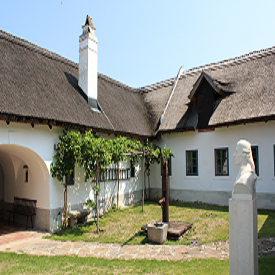Lesson 6: Joseph Haydn
Lesson 6: Joseph Haydn

Lesson 6: Joseph Haydn
Joseph Haydn
Joseph Haydn
Joseph Haydn
Born in 1732, Joseph Haydn was one of the most prolific composers of the Classical period. His musical impact on the period is reflected in the titles 'Father of the Symphony' and 'Father of the String Quartet.' Haydn would leave a strong legacy in both of these areas, as well as on the Classical period as a whole.
Born in Austria, Haydn's musical talents were recognized early and he received training and worked in a number of different venues. In 1761, he was offered a position with the Esterhazy family, one of the richest and most important families in Austria. His duties ranged from composing music, playing chamber music, overseeing the orchestra, and arranging opera performances for the family and their guests. In the thirty years that he worked for the family, Haydn composed a great number of musical pieces in a range of styles. As he spent a great deal of time on the family's rural estate, Haydn was relatively isolated from the other composers at the time. He would argue that this forced him to be more innovative and creative in his work.
Places where Haydn lived
In 1790, Haydn was offered a pension and he became free to travel. He accepted an offer to go to London and compose symphonies for a large orchestra. The enterprise was a great success, both in increasing Haydn's fame as a composer and in making Haydn financially secure. By the late 1790s, he had returned to Austria and spent time composing religious works on a larger scale. In 1802, an illness made it impossible for Haydn to continue composing. He died in 1809 at the age of 77.
Hadyn: Piano Sonata Hob. XVI No. 27